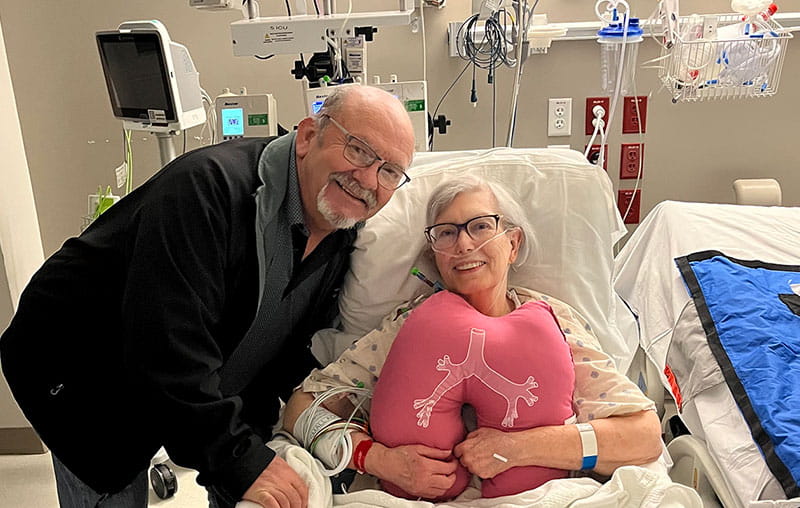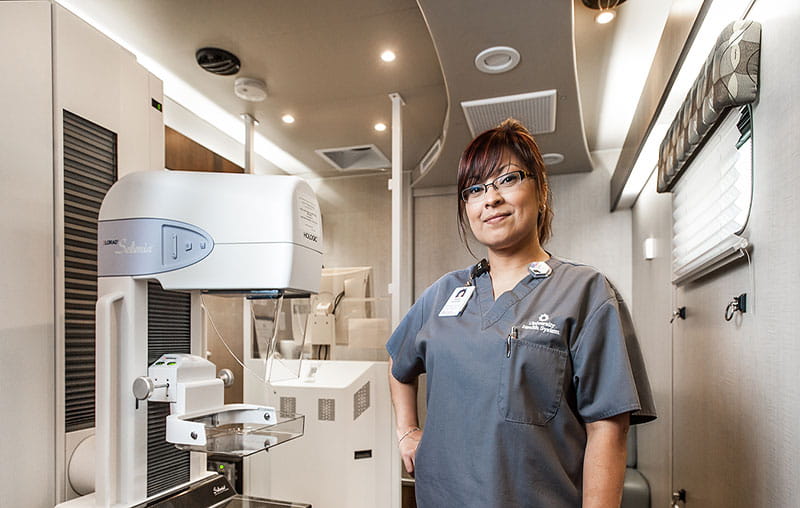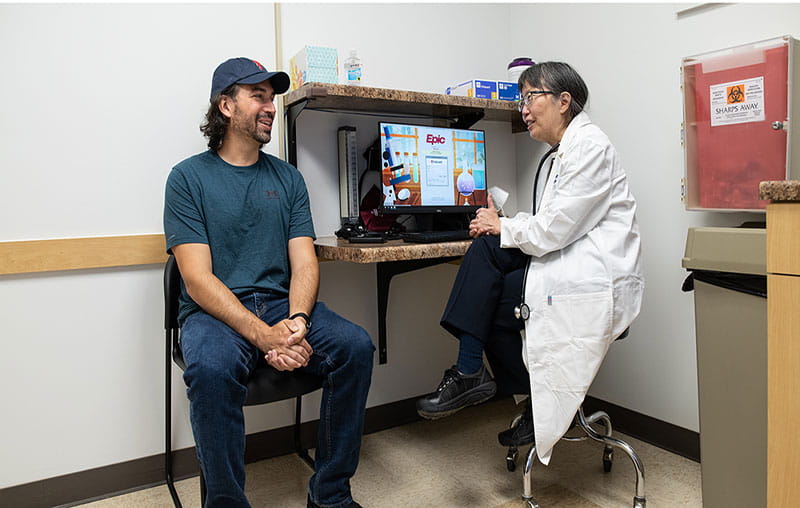In 2022, nearly 20,000 Texans were diagnosed with breast cancer.
The COVID-19 pandemic made it hard for some people to keep up with their regular check-ups and health screenings. A 2022 Bexar County report shows an estimated one in four women aged 50 and older reported getting a mammogram screening. Black women in particular showed the lowest percentage of getting a mammogram between 2015 and 2022.
In order to identify breast cancer early, it’s recommended women aged 40 and older should get a mammogram once a year. But like many women in Bexar County, Addie Vaughn had been putting off her regular mammograms.
A Life-Changing Diagnosis
After some convincing from her primary care provider, Dr. Iyunoluwa Agboola, and her daughter, Addie got a mammogram. Then she got a phone call.
Dr. Agboola informed Addie she had stage 1 triple negative breast cancer, which is an aggressive type of cancer commonly diagnosed in Black women. Addie needed to start treatment right away, so Dr. Agboola helped her make appointments with an oncologist and a surgeon.
Treatment Journey And Support
“After my diagnosis, [Dr. Agboola] had all the doctors aligned for me,” Addie said. “I didn’t have to call any doctors or do any research. [Dr. Agboola] was part of my support system and took the stress off my shoulders.”
Addie’s care team quickly arranged her treatments. About a month and a half after her diagnosis, Addie had a mastectomy (surgical removal of the breast) to remove the tumor, followed by chemotherapy and radiation therapy to target the cancer cells that had already spread. Now she’s been in remission for over three years.
Addie credits her family and her doctors for being her incredible support system.
“My daughter and her in-laws were phenomenal,” Addie said. “My daughter was able to take me to all my appointments, stayed for every chemo treatment I had.”
Cost Should Not Be a Barrier to Care
At the time, Addie did not have health insurance. Because the cancer had spread to the lymph nodes, her oncologist, Dr. Kate Lathrop, insisted she start treatment regardless of coverage.
Thanks to Dr. Lathrop’s guidance, Addie scheduled her chemotherapy treatments. The cancer did not continue to spread and Addie was able to obtain proper health insurance.
“There are no excuses to delay visits and screenings,” Addie said. “The best thing you can do is look for resources … and ask for payment arrangements because cancer is serious.”
Access to Care
The Affordable Care Act ensures that all Marketplace health insurances fully cover yearly mammograms for women aged 40 and older even if you haven’t met your deductible.
If you find yourself in a similar situation to Addie and need financial assistance, University Health’s Institute for Public Health offers health insurance resources and alternatives that could help cover the cost of your medical services.
We also offer mobile mammography to make getting your mammogram convenient.
Early Detection Saves Lives
Addie hopes her story inspires women to stay on top of their health screenings and schedule their regular mammograms. “If you don’t have a primary care provider, get one. And get yourself early screenings,” Addie said.
“This is one of the things I know saved my life,” Addie said. “If I would have waited to get my mammogram, I wouldn’t be able to tell my story. Early detection saves lives. It saved mine.”
The Importance of Regular Mammogram Screenings
Mammograms are the number one way to screen for breast cancer. They are painless and create an X-ray image of breast tissue. If abnormalities are found in the image, your doctor may order further testing, such as a biopsy. Women aged 40 and older at average risk for breast cancer should get a mammogram once a year.
No matter your age, if you have a family history of breast cancer, you have a high risk of being diagnosed with breast cancer. Talk to your primary care provider about whether you should begin screening early and to understand your breast cancer risks.
Breast Health at University Health
At University Health, we provide comprehensive, advanced care for all types of breast conditions, including breast cancer for men and women.
We’re here to support your breast health with a full range of advanced diagnostic tests, including mammograms, ultrasounds, MRIs and image-guided biopsies. We’re also proud to be the only facilities in the area where you can receive your mammogram results while you wait, giving you greater peace of mind.
Learn more about our breast cancer and breast health services.




